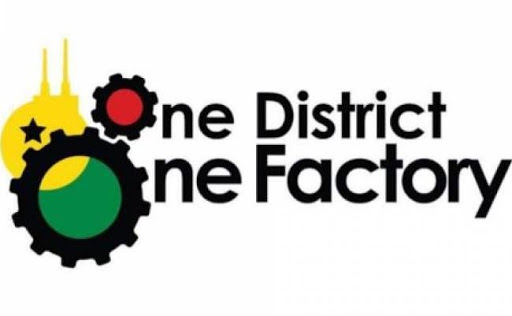The One District-One Factory (1D1F) and Planting for Food and Jobs (PFJ), if pursued more vigorously, can strengthen the domestic private sector, the Executive Council of the Trades Union Congress (TUC) has observed.
TUC believes these initiatives need rapid expansion and support from all social partners. “They can make a significant difference in strengthening the industrial base of our economy for job creation, especially in rural communities,” the council noted.
It in its New Year message copied to media houses and signed by its Secretary-General, Dr. Yaw Baah, the Trades Union Congress wished all workers a very Happy, Prosperous and Peaceful New Year! It noted that last year (2020) was a very challenging one because of the coronavirus pandemic, as it affected all economically, socially and psychologically.
“Unfortunately, COVID-19 has followed us into 2021,” he said, but expressed confidence that government will work tirelessly to ensure adequate supply of COVID-19 vaccines in Ghana as soon as possible.
The umbrella-body of 18-affiliate national trade unions took the opportunity to congratulate Nana Addo Dankwa Akufo-Addo on his re-election as President of the Republic of Ghana, and equally commended former President John Dramani Mahama for his decision to seek redress of his grievances at the Supreme Court.
The TUC also congratulated the newly-elected Speaker of Parliament, Alban Bagbin, the Deputy Speakers, and all Members of Parliament on their election or re-election.
TUC however tersely stated that it is unpardonable that, almost 64 years after independence from colonial rule, millions of Ghanaians have no access to basic necessities such as clean water and sanitation facilities.
Also, 4.5 million Ghanaians have no access to electricity despite the fact that Ghana has excess capacity of electricity; a significant number of Ghanaian children and women of childbearing age are suffering from chronic malnutrition and anemia; while many children are dying needlessly from malaria and other preventable diseases because of the unhygienic conditions and poor healthcare.
“Our roads are comparable to war zones in terms of the number of people who lose their lives through preventable road accidents every day; many Ghanaians are living in streets because they have no access to housing; our national daily minimum wage is a paltry GH¢319 per month; and young graduates cannot find jobs many years after graduation.”
The TUC therefore notes that the task ahead is huge, and observed that the president in his inaugural address acknowledged “the considerable amount of work that is to be done over the next four years in the drive to take the nation firmly onto the path of progress, prosperity and development following the havoc wrought by COVID-19”.
“That is why we urge the NPP and NDC to find a way of working together – not only in the parochial interest of their parties, but more importantly in the supreme interest of the good people of Ghana,” it further stated.
The TUC has already written to the Ministry of Employment and Labour Relations requesting for a meeting of the National Tripartite Committee to commence negotiation of a national minimum wage for 2021 to pave the way for negotiation of base pay.
“We expect negotiation of the national minimum wage and base pay for 2021 to be concluded before the National Budget is presented to Parliament in March 2021.”
In his State of the Nation Address recently, the president announced government’s decision to exclude all security agencies from the unification of pensions. However, TUC regrets to inform the president that TUC cannot support such a policy.
“It should be noted that pension unification is an important component of the pension reform. The decision to allow security agencies to continue enjoying benefits under the non-contributory CAP 30 scheme undermines the solidarity principle that served as a key guiding principle for the pension reform initiative.”
That decision also contravenes the principle of equality of treatment in employment, as clearly stipulated in the International Labour Organisation (ILO) Convention 111 (Discrimination–Employment and Occupation) which was ratified by Ghana in 1961.
Consequently, the TUC is calling on government to convene a stakeholder consultation forum to discuss this and other pertinent pension matters. In conclusion, the TUC and its affiliate unions will continue to work with social partners on important matters of state; and will continue to play its role in promoting industrial peace, which is necessary for economic and social transformation.










